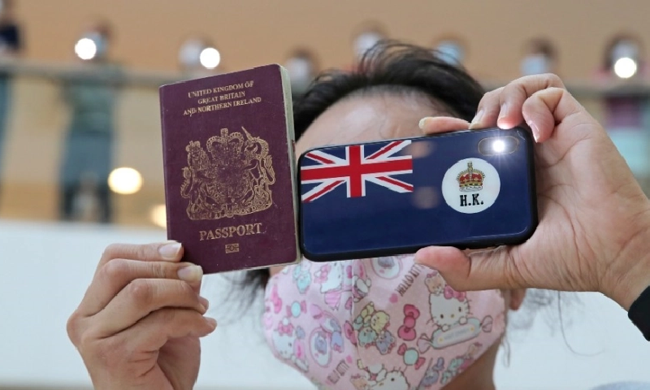Beijing … News Time
China has announced that the British National Passport (BNO) will no longer be recognized for the people of Hong Kong. According to Al Jazeera, Chinese Foreign Ministry spokesman Li Zhao Lijian said that from January 31, China will not recognize so-called BNO passports, travel documents, identity documents and reserves the right to take further action. The report said China’s decision came as no surprise as Beijing had delayed the process for months and linked it to the National Security Act, which did not take any action against the government. On the other hand, the British government reiterated its commitment to stand with the people of its former colony. Keep in mind those holders of BNO passports will be able to live and work in the UK for 5 years from Sunday and will possibly be granted a green card. Prior to the BNO passport, Hong Kong citizens were only allowed to stay in the UK for six months and did not have the right to work. The Prime Minister of the United Kingdom Boris Johnson said in a statement: “I am delighted that a new BNO route has been opened for Hong Kong so that they can live and work in our country. “We are pleased to be doing this out of respect for our historic relationship and friendship with the people of Hong Kong, and we stand for freedom and sovereignty,” he said.
Citizens born in Hong Kong prior to 1997 have the right to reside in the UK under the BNO Passport, and under the new law, an estimated 2.9 million people from Hong Kong and 2.3 million dependents will be deported to the UK will be able to enter. It should be noted that the city was ceded to China by Britain in 1991 and China is ruling here under one country, two systems framework and Hong Kong has semi-autonomy. In October 2019, there were large-scale protests in Hong Kong against a proposed extradition law, highlighting sharp differences between the democratically minded people of Hong Kong and Beijing’s ruling Communist Party.
The protests began peacefully in Hong Kong, but turned violent after a strong government response. The law, which allowed Hong Kong citizens to be sent to China for trials, was withdrawn after fierce protests, but protests continued for months, including voting for rights and police brutality. Demands for an independent inquiry were included. In July last year, the UK offered the offer not to all Hong Kong citizens but only to those who hold a British National Overseas (BNO) passport.
British Home Secretary Priti Patel had said that Hong Kong BNO passport holders and their relatives would be able to apply for a special UK visa from January to leave the country. British Foreign Secretary Dominic Robb had said that Hong Kong residents with British citizenship abroad and their dependents would be offered the right to work and study in the UK for five years. “There will be no quotas for people already living in the UK or holding citizenship, we will not relinquish our historic responsibilities and the passage of the National Security Act is very disappointing,” he added. “China has not fulfilled its promises to the people of Hong Kong through its national security laws, but we will keep our promises to them,” he said.




